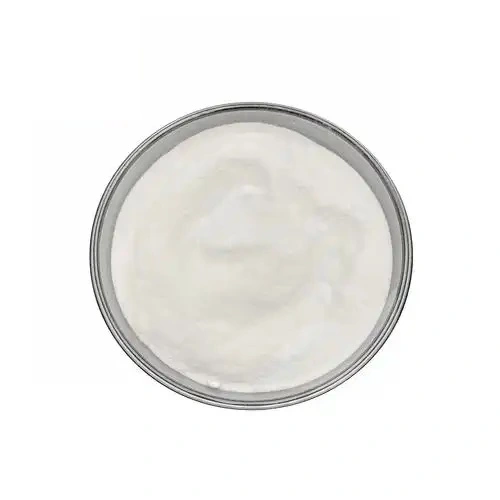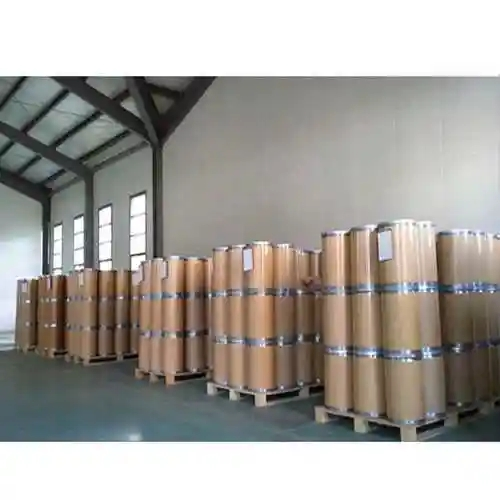Colchicine Powder for Inflammation: A Natural Remedy?
Inflammation is a common health concern that affects millions of people worldwide. While there are various treatments available, many individuals seek natural alternatives to manage inflammatory conditions. One such option that has garnered attention is colchicine powder. In this comprehensive guide, we'll explore the potential of colchicine powder as a natural remedy for inflammation, examining its mechanisms, effectiveness, and safety profile.
How Colchicine Powder Helps Reduce Inflammation?

Colchicine powder, derived from the autumn crocus plant (Colchicum autumnale), has been utilized for centuries in traditional medicine. Its anti-inflammatory properties stem from its unique mechanism of action within the body.
At the molecular level, colchicine interferes with the assembly and disassembly of microtubules, which are essential components of cellular structure and function. This disruption affects various inflammatory processes:
- Neutrophil Migration: Colchicine inhibits the movement of neutrophils, a type of white blood cell, to sites of inflammation. This reduces the overall inflammatory response.
- Cytokine Production: The powder suppresses the release of pro-inflammatory cytokines, which are signaling molecules that promote inflammation.
- NLRP3 Inflammasome Inhibition: Colchicine blocks the activation of the NLRP3 inflammasome, a protein complex involved in the inflammatory response.
- Antioxidant Effects: Some studies suggest that colchicine may have antioxidant properties, further contributing to its anti-inflammatory effects.
Moreover, colchicine's anti-inflammatory effects extend beyond gout. Research has shown promising results in treating various inflammatory conditions, including:
- Familial Mediterranean Fever (FMF)
- Behçet's disease
- Pericarditis
- Osteoarthritis
The versatility of colchicine powder in addressing different inflammatory conditions highlights its potential as a broad-spectrum anti-inflammatory agent. However, it's crucial to note that while colchicine is derived from a natural source, its use should always be under medical supervision due to its potent effects and potential side effects.
Clinical Studies on Colchicine Powder's Effectiveness
The efficacy of colchicine powder in treating inflammatory conditions has been the subject of numerous clinical studies. These investigations provide valuable insights into its therapeutic potential and help establish guidelines for its use in various medical contexts.
Gout Management
Gout, a form of inflammatory arthritis, has been a primary focus of colchicine research. A landmark study published in the New England Journal of Medicine demonstrated that low-dose colchicine significantly reduced pain and inflammation in acute gout flares. The study found that 38% of patients taking colchicine achieved a 50% reduction in pain within 24 hours, compared to only 16% in the placebo group.
Cardiovascular Applications
Recent research has expanded the potential applications of colchicine beyond its traditional use in gout. The COLCOT (Colchicine Cardiovascular Outcomes Trial) study, published in the New England Journal of Medicine, investigated colchicine's effects on cardiovascular outcomes. The study found that low-dose colchicine reduced the risk of ischemic cardiovascular events by 23% in patients with recent myocardial infarction.
Familial Mediterranean Fever (FMF)
Colchicine has shown remarkable efficacy in managing Familial Mediterranean Fever, a genetic inflammatory disorder. A meta-analysis of clinical trials demonstrated that colchicine reduced the frequency of FMF attacks by 73% and significantly improved quality of life for patients.
Dosage Considerations
Clinical studies have also helped establish optimal dosing regimens for colchicine powder. For gout, a low-dose strategy (0.6 mg once or twice daily) has been found to be as effective as higher doses while minimizing side effects. In FMF, doses typically range from 1 to 2 mg daily, adjusted based on patient response and tolerance.
It's important to note that while these studies demonstrate colchicine's potential, individual responses can vary. Proper medical supervision is essential to determine the appropriate use and dosage of colchicine powder for each patient's specific condition.
Is Colchicine Powder a Safe Alternative to Steroids?
As the search for effective anti-inflammatory treatments continues, many patients and healthcare providers are considering colchicine powder as a potential alternative to steroids. While both medications have anti-inflammatory properties, they differ significantly in their mechanisms of action, side effect profiles, and suitable applications.
Comparing Mechanisms
Colchicine works primarily by disrupting cellular processes involved in inflammation, such as neutrophil migration and cytokine production. In contrast, steroids have a broader effect, suppressing the entire immune system. This difference means that colchicine may offer a more targeted approach to inflammation management in certain conditions.
Side Effect Profiles
One of the main advantages of colchicine over steroids is its potentially more favorable side effect profile, especially for long-term use. Steroids are associated with a wide range of side effects, including:
- Weight gain
- Osteoporosis
- Increased risk of infections
- Skin thinning
- Mood changes
- Adrenal suppression
Colchicine powder, while not without its own side effects, generally has a more limited range of adverse effects. The most common side effects of colchicine include:
- Gastrointestinal disturbances (nausea, diarrhea)
- Muscle pain or weakness (in some cases)
- Potential for drug interactions
Suitability for Different Conditions
Colchicine is particularly effective in specific inflammatory conditions such as gout and FMF, where it is often considered a first-line treatment. It has also shown promise in cardiovascular inflammation and certain rheumatological conditions.
Steroids, on the other hand, have a broader range of applications due to their powerful immunosuppressive effects. They remain the treatment of choice for many autoimmune disorders, severe allergic reactions, and certain types of cancer.
Long-term Use Considerations
For conditions requiring long-term management, colchicine may offer advantages over steroids. The risk of serious side effects with long-term steroid use is well-documented, whereas colchicine has demonstrated a better safety profile for extended use in conditions like gout and FMF.
Individualized Treatment Decisions
The decision to use colchicine powder as an alternative to steroids should be made on a case-by-case basis, considering factors such as:
- The specific inflammatory condition being treated
- The patient's overall health status
- Potential drug interactions
- The expected duration of treatment
- Individual response to treatment
While colchicine offers a promising alternative in certain scenarios, it's not a universal replacement for steroids. Some conditions may still require steroid treatment, and in some cases, a combination of both medications might be appropriate.
Conclusion
Colchicine powder represents a fascinating option in the realm of anti-inflammatory treatments. Its unique mechanism of action, coupled with a growing body of clinical evidence, positions it as a valuable tool in managing various inflammatory conditions. From its well-established role in gout management to emerging applications in cardiovascular health, colchicine continues to demonstrate its versatility and efficacy.
While it offers potential advantages over steroids in certain scenarios, particularly for long-term use, it's crucial to approach colchicine use with caution and under proper medical supervision. The decision to use colchicine should always be made in consultation with a healthcare provider, taking into account individual patient factors and the specific condition being treated. For more information about colchicine powder and other plant-based extracts, please contact us at emily@jiubaiyuanbiotech.com.

References
1. Slobodnick, A., Shah, B., Pillinger, M. H., & Krasnokutsky, S. (2015). Colchicine: old and new. American Journal of Medicine, 128(5), 461-470.
2. Nidorf, S. M., Fiolet, A. T. L., Mosterd, A., Eikelboom, J. W., Schut, A., Opstal, T. S. J., ... & Thompson, P. L. (2020). Colchicine in Patients with Chronic Coronary Disease. New England Journal of Medicine, 383(19), 1838-1847.
3. Leung, Y. Y., Yao Hui, L. L., & Kraus, V. B. (2015). Colchicine—Update on mechanisms of action and therapeutic uses. Seminars in Arthritis and Rheumatism, 45(3), 341-350.
4. Tardif, J. C., Kouz, S., Waters, D. D., Bertrand, O. F., Diaz, R., Maggioni, A. P., ... & Dubé, M. P. (2019). Efficacy and Safety of Low-Dose Colchicine after Myocardial Infarction. New England Journal of Medicine, 381(26), 2497-2505.
5. Ozen, S., Demirkaya, E., Erer, B., Livneh, A., Ben-Chetrit, E., Giancane, G., ... & Eurofever Registry and the Paediatric Rheumatology International Trials Organisation (PRINTO). (2016). EULAR recommendations for the management of familial Mediterranean fever. Annals of the Rheumatic Diseases, 75(4), 644-651.
